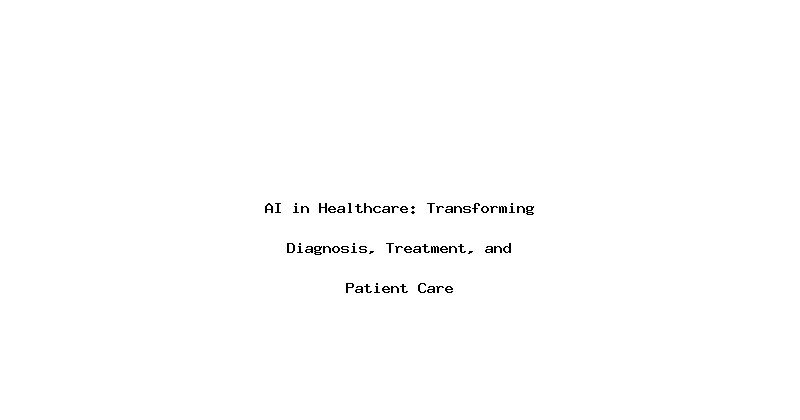# AI in Healthcare: Transforming Diagnosis, Treatment, and Patient Care
## Introduction
Artificial intelligence is rapidly revolutionizing the healthcare industry. From diagnostic imaging to personalized medicine, AI technologies are driving innovations that promise improved patient outcomes, efficiency, and accessibility. This article examines the latest advances, real-world impacts, and ongoing debates surrounding AI in healthcare.
## Breakthroughs in Medical AI
– **Diagnostic Imaging:** AI algorithms now assist radiologists by detecting anomalies in X-rays, MRIs, and CT scans with remarkable accuracy.
– **Drug Discovery:** Machine learning models analyze vast datasets to predict promising compounds, accelerating the development of new medications.
– **Remote Monitoring:** Wearable devices and AI-powered apps track patient vitals, enabling proactive care and early intervention.
## Real-World Impact
Hospitals and clinics worldwide are deploying AI tools to streamline administrative tasks, reduce human error, and support clinical decision-making. Telemedicine platforms leverage AI for symptom assessment and triage, expanding access to care in underserved regions.
## Challenges and Concerns
– **Data Privacy:** Protecting sensitive health data is a major concern, with calls for robust security and transparent data usage policies.
– **Bias in Algorithms:** AI models trained on limited or skewed datasets may produce biased results, affecting diagnosis and treatment.
– **Regulatory Hurdles:** Governments are working to establish guidelines for safe and ethical AI adoption in healthcare settings.
## The Future of AI in Healthcare
Collaboration between technologists, clinicians, and regulators is key to unlocking AI’s full potential in medicine. Ongoing research aims to make AI systems more interpretable and trustworthy, ensuring that technology enhances—rather than replaces—human expertise.
—
*This article was generated based on current global trends and news reports in October 2025.*

